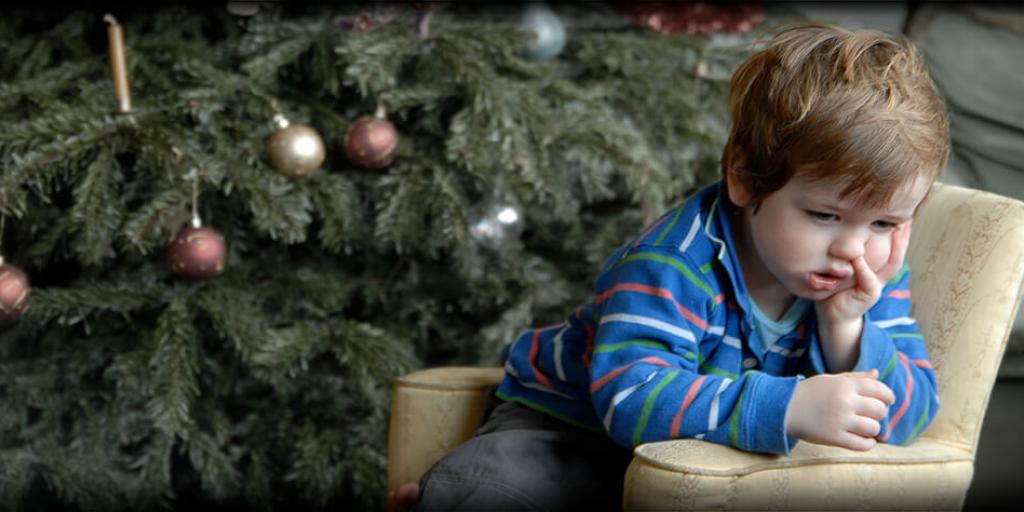
Christmas Lies
Many people love the Christmas holiday, with its decorations, cookies, treats and parties. Some recognize that these trappings have nothing to do with the birth of Jesus Christ. In fact, most of the observance is a lie.
Dozens of Christmas stories and Hollywood movies about Christmas concern magic characters, magic trees, magic ornaments or magic stockings. Frosty the Snowman “comes to life” when a magic hat is placed on his head. The magical Santa Claus character has the supernatural power to know if children have been “naughty or nice.” Both are big, fat, jolly lies!
Many of the stories are designed to elicit “warm and fuzzy, feel good” emotional responses. “Aww, isn’t that sweet?” we may think. Other stories may use the good versus evil construct with magical characters like elves, fairies and reindeer defeating a bad magical character. Inanimate objects like toys or sleighs “come to life” with magical power. These sentimental stories are accompanied with beautiful music, decorations and colored lights. And we may be asked to “just believe.”
To my dear mother’s credit, she never told me and my siblings the Santa Claus myth. She explained that it was just a story. This was fine with me because reindeer flying without any wings flew in the face of logic, even at a child’s level. So also, a big fat man coming down chimneys to leave gifts was an obviously silly lie and did not reconcile with the fact of seeing so many people shopping and wrapping presents.
The older I became, and the more I learned about Christmas, the more the Christmas lies were revealed. The childish Christmas stories had nothing to do with the birth of Christ. The evergreen tree with tinsel and lights, giving gifts to family and friends—these traditions along with all the rest have nothing to do with the birth of Christ. They are all lies.
The festive parties with food and too much drink, music, dancing and exchanges of gifts have nothing to do with Jesus Christ. The merriment, greetings, expressions of goodwill and time spent with family and friends may give a temporary emotional lift. But these have nothing to do with Christ or the true gospel message.
However, the other side to the story is that some experience emotional and physical stress in all of the nonsense of gifts, preparing food and attending or hosting parties. Many also suffer economic stress, going into debt to buy gifts. Some haven’t even finished paying for last year’s holiday debt. Others experience family squabbles and arguments as old emotional wounds resurface, and contentions erupt with ex-family members due to divorce.
For those who suffer isolation, Christmas heightens the sense of isolation, leading to deeper loneliness and depression. Add over-indulgence in alcohol and the problems can be multiplied.
Concerning the very foundation of the holiday, many realize that Christmas is an attempt to stretch a new façade over old pagan winter solstice observances in honor of mythological “gods” (whom Scripture reveals to be demons in Deuteronomy 32:16–17 and 1 Corinthians 10:19–21). Most encyclopedias explain the decorations and traditions of these pagan observances, including mistletoe, holly wreaths, tree worship, gift giving, caroling and a miraculous birth. Such symbols and practices were merely given new labels and meanings. All this amounts to an unseemly contrivance on the part of “Christianity” to adopt pagan observances.
Why take something thoroughly pagan in origin and declare it as a way to worship Jesus Christ? The Bible does not reveal the date of Jesus’ birth and does not tell us to honor Him that way. Christmas trees, Santa Claus, elves and gift exchanges do nothing to honor Jesus Christ.
The Bible, however, does give us instructions and principles to follow in determining how and when we are to worship God and Christ.
If you would like to know more about the origins of Christmas, whether or not you should observe it, and why, read our booklet, Is Christmas Christian?, and the articles, “Should Christians Keep Christmas?” and “Christmas: Harmful to Children?”
Stay up to date with our Weekly Digest Email!
Tomorrow's World ComMentary Podcast
Subscribe to Tomorrow's World Commentary podcasts on iTunes and Google Play!



